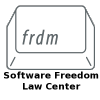How we are booting millions of Linux kernels with KVM and Lguest
Using an open-source, web-based model termed the "FlexBook," this talk will present our efforts to pioneer the generation and distribution of high quality educational webtexts that will serve both as source materials for a student's learning and, as well,
Learn how to make great technical documents!
An overview of the Apache Software Foundation
This session includes a contextual overview, a walk through and a few basic demonstrations of how to use this off-line XHTML editor which has been specifically designed to construct and package instructional based course materials for LMS distribution.
Moblin is an open source project focused on building a Linux-based platform optimized for the next generation of mobile devices including Netbooks, Mobile Internet Devices, and In-vehicle infotainment systems.
See a new approach to 1 to 1, managing netbooks, laptops and thin client with Linux
Tackle a web project by yourself with open source software, and without losing your mind.
The requirement for 'instant-on' capability in consumer electronics has become a necessity. This session examines techniques to reduce boot time while preserving the base functionality required of typically configured embedded Linux systems.








